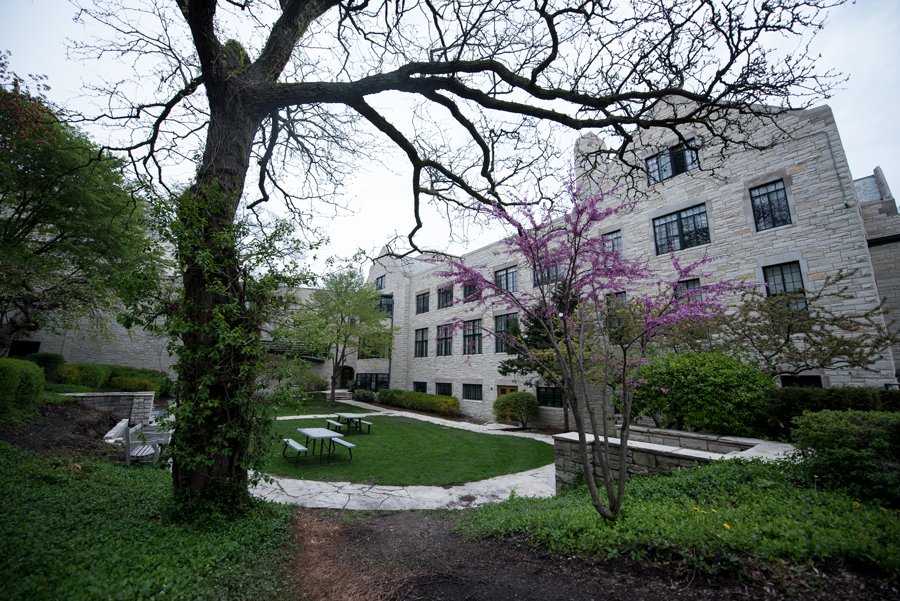Profs. discuss police accountability one year after George Floyd’s murder
Daily file photo by Colin Boyle
Center for the Study of Diversity and Democracy. Professors presented research on police accountability and public attitudes toward law enforcement.
May 25, 2021
One year after the police murder of George Floyd in Minneapolis, professors discussed police accountability at a Tuesday panel.
Last year, Minneapolis police officer Derek Chauvin’s killing of Floyd sparked nationwide protests and conversations about police brutality, racism and the carceral system. Chauvin was convicted of Floyd’s murder, as well as manslaughter, in April.
SESP Prof. Tabitha Bonilla, political science Prof. Traci Burch and Vanderbilt University Prof. Shatema Threadcraft presented research on police accountability and public attitudes toward law enforcement, followed by a question and answer session.
The “Anti-Racism in Thought and Action Speaker and Discussion Series” panel was hosted by Northwestern’s Center for the Study of Diversity and Democracy. Talent Acquisition Partner and member of the Change Makers Review Committee Stefanie Hicks and political science Prof. Alvin Tillery moderated.
When asked to speak on what Black communities want regarding policing, Burch said the answer is complicated but consistent.
“Black communities have kind of been asking for the same thing over and over again,” Burch said.
Burch presented data indicating widespread agreement among Black Americans that the police do a subpar job, but a divide on how to address this failure. One survey, for example, showed an even split in whether communities need more or fewer police officers.
Among the factors that matter in the degree of mobilization, Burch said, are the victim’s race and whether they were seen as “low-threat,” according to Burch’s research. These variables, she said, can affect the public’s perception of these killings.
Bonilla gave an overview of public opinion on Black Lives Matter and police accountability using public and original research. She said survey participants endorsed police reform more than abolition, and that a policy of changing protocols for punishing police misbehavior garnered the most support. She said messaging with policy proposals, though, makes an impact on support for them.
“The public seems to have a lot more room for movement around abolishing the police and defunding the police and the need for understanding what those terms mean and how specific types of reform or changes might contribute to either of those two overarching opinions,” Bonilla said.
Threadcraft, who researches the public and private divide on Black people’s deaths, said Black feminism and the activists who spearhead political mobilization need to be paid more attention. Black women, she said, often face violence in private spheres such as relationships, in contrast to more visible police killings of Black men.
While originally skeptical of community-based approaches, Threadcraft said she has since become more open to grassroots mobilization to seek justice after death.
“We need to think about how to put Black female death and Black queer and Black trans death on equal footing, to call their publics into being,” Threadcraft said, “even though the violence they experience is often private.”
The webinar concluded with co-chair of the Change Makers Review Committee and librarian Steven Adams assigning the audience anti-racist actions.
The next step, he said, was to think about policies and social norms on campus, such as racial profiling and the lack of gender-neutral bathrooms — ones will not be socially acceptable in the future. He prompted the audience to have a conversation with those who are responsible for upholding these norms.
“Let’s not wait five years to get disturbed about (social injustice),” Adams said.
Email: [email protected]
Twitter: @rjleung7
Related Stories:
— Activists, scholars discuss abolition at “Abolitionist Futures” event
— Skokie residents join local groups in rally against police brutality


